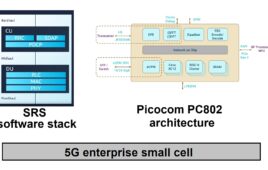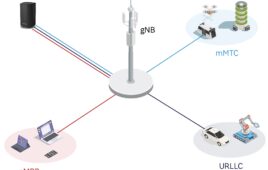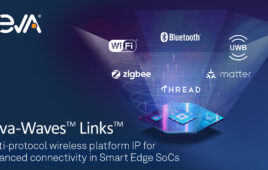
So far, Mobile World Congress Americas hasn’t disappointed. The show has been full of diverse, innovative technologies, from RF transmitters and Internet of Things devices, to microchips and smartphone accessories. With hundreds of vendor booths and dozens of different conferences, it would be impossible for one person to visit every exhibition and attend every seminar.
Amidst the vast array of devices, concepts, and themes, a few notable trends have emerged from the show worth mentioning. Each one displayed not only the progress achieved in their pertinent industries, but the innovative direction wireless technology and mobility is headed.
With tens of billions of devices projected to be connected over the next 3 to 5 years, cybersecurity has become a growing industry concern. Mobile World Congress Americas has displayed dozens of exhibitors specializing in cloud services, IoT, security, and encryption.
Several booths distinguish their cloud services from competitors with traits such as scalability, privacy features, self-service capabilities, and “industry firsts” in software and storage space. Novatel Wireless for example, has collaborated with Keysight Technologies, to successfully demonstrate a 1.2 Gbps downlink throughput on Novatel’s next-generation MiFi. The high-profile connected solutions for IoT described this achievement as the industry’s first CAT 18 LTE mobile hotspot. It seems more companies are not only getting involved with cloud services for the first time, but ones with previous programs have made noteworthy upgrades and advancements to their current models. VirtuLocity Networks, a mobile internet application developer, unveiled its VLNCloud software at the show. The virtual cloud service accelerated cloud connection bandwidth throughput and transit time for user-to-cloud, cloud-to-user, or cloud-to-cloud connections.
Inevitably, 5G has been one of (if not) the hottest discussion topics, exhibition themes, and seminar topics. One of the ways that vendor booths and seminars are able to maintain the 5G theme while remaining distinguishable from each other has been the context their products or service will utilize this upcoming generation of wireless broadband. Companies like Samsung and Charter have used MWCA as a platform to showcase their collaborative 4G and 5G trials that were being conducted in various locations throughout the United States. Facets of 5G like its real-time streaming have been demonstrated in various streaming services and devices, along with machine-to-machine correspondence.
Many vendors have emphasized the significance of this attribute for the key role real-time connectivity will play in critical situations like natural disasters, medical emergencies, and assisting law enforcement. Faster download times and higher bandwidth capacities were topics brought up in seminars, which focused on benefits like storing more data and streaming larger quantities of high-quality, high-definition content.



